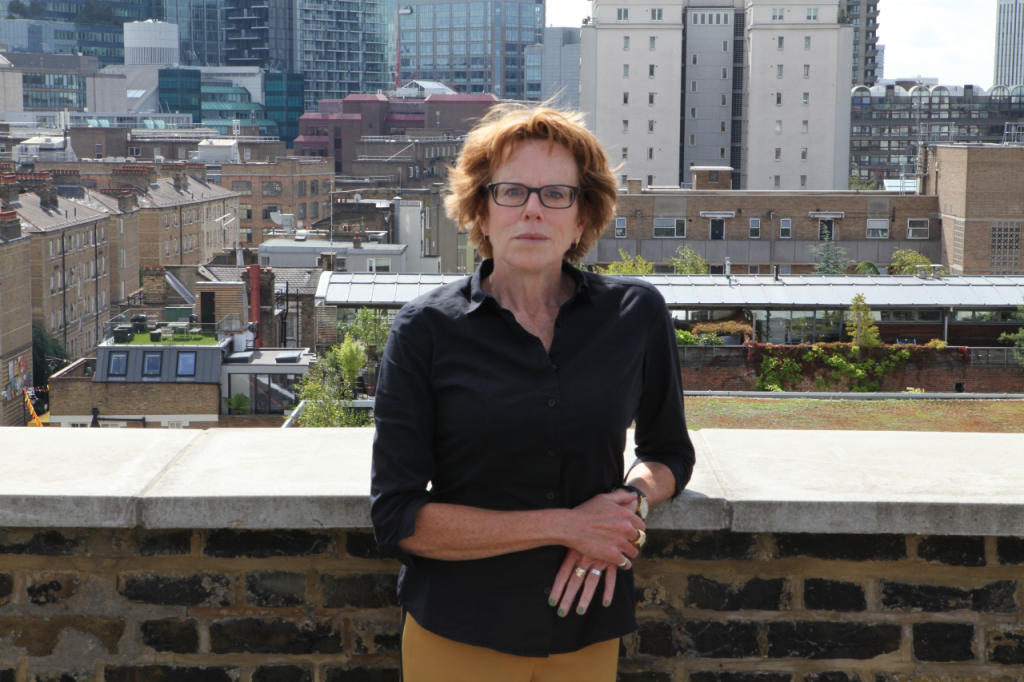Smart digital for Businesses
I’m Polly Neate and this is #MYCHARITY
This week for the #MYCHARITY interview series, we speak to Polly Neate, Director at Shelter, a charity that helps millions of people every year struggling with bad housing or homelessness through advice, support, and legal services.

Location: London
Current job: Chief Executive at Shelter,
One word that best describes how you work: Positive
Your biggest success: Times when I’ve been able to use my privilege and influence as a leader to actually change things
Your greatest fear: Big scary looking dogs
Your biggest dream: A generational change in housing policy, which I helped bring about
Your favourite movie: At the moment, Rocks
First of all, tell us a little about your background and how you got into the charity sector.
I started my career as a journalist and specialist early on in social policy. For many years, I absolutely loved journalism, but eventually, I started feeling it wasn’t as much of an opportunity to make a difference as I had once thought. Maybe I got less idealistic, and that’s why I joined the charity sector – which is ironic because I think a lot of people think working in the charity sector must be about as idealistic as you can be!
Tell us more about Shelter and what has been the impact of the pandemic in your workday?
Shelter exists to defend the right to a safe home. We are here to change things for the better by working with individuals, in communities, and across society. I have about 1400 incredibly committed, talented and expert colleagues who make that happen. In terms of the impact of the pandemic on my working day personally, the main thing has been that I have hardly seen a colleague face to face for nearly a year now. I am now missing everyone very badly and struggling to think of ways of being the best leader I can be under these circumstances. It’s also meant some difficult decisions having to be made very rapidly and under a lot of pressure.
How much digitalisation has helped the charity sector and Shelter in these difficult times?
I am very proud of our response to the pandemic, and it would simply not have been possible without our use of technology, from directly providing digital advice to the fact that our telephone tech allows colleagues to answer our helpline from anywhere in the country – or indeed further afield: when the first lockdown started, one colleague was stuck visiting family in Pakistan and answered helpline calls from desperate people facing homelessness in England from his rooftop in Lahore!
Shelter‘s partnerships have the best cause/purpose alignment, can you give quick advice to small charities on how to look for the best partnership ‘match‘?
I think the answer is in your question: if a company or organisation doesn’t share your values and genuinely buy into your purpose, the partnership will be continually strained and may be more trouble than it’s worth if you’re writing a funding proposal that feels like squeezing a square peg into a round hole, thinking again. Having said that, though, for smaller organisations, there often simply isn’t the luxury of avoiding going for every pot of funding you can see. So I would turn the challenge back onto funders: listen to the organisations that really need the money; don’t think you know better than they do; don’t be afraid to fund core costs – if you need a back office, why do you think a charity doesn’t?
How do you recharge? What do you do when you want to forget about work?
I really need to get outside, and I’m probably most relaxed when climbing or on my bike. I think that’s why I’ve been struggling more in Lockdown 3 than in previous lockdowns because the weather has been so awful. Cycling really helps me to reflect. If I have something difficult to think about, it can be resolved by the end of a couple of hours on the bike. Climbing is different because you can only think about what you’re doing. I need both. Recently though, my job has become a lot less creative, and I’ve been having to consume a lot of arid information and make a lot of decisions, and I’ve been missing using my creativity (such as it is!). I’ve been trying to do more writing, and play the piano, to compensate. I am very lucky, though, in that I have a wonderful partner and two brilliant daughters. I love talking to them. And we have enough space to live in. This past year has made me more aware of my own privilege than ever.
What are you currently reading, or what’s something you’d recommend?
When I’m not on holiday, I can’t manage to read anything outside what I have to read for work. It’s a nightmare. And because I couldn’t get away to Ireland last summer like I do every year, I read a tiny fraction of the fiction I would usually read on holiday. So instead, I will recommend what my eldest daughter has been doing during the pandemic. She set herself the challenge of reading every single book by Marian Keyes, and boy did she enjoy it!
Fill in the blank: I’d love to see _____ answer these same questions.
Sarah Hughes CEO of Centre for Mental Health
What’s the best advice you’ve ever received?
My Dad once said: “You’re not special, you’re just lucky”. Accepting that is accepting privilege. And that is a lifelong challenge.
What’s the best advice you would give to Millennials who want to approach the non-profit sector?
Find a cause that matters to you—a lot.
You can follow @Sheltercharity on Instagram.
We love to interview charity’s leaders and listen to their work and their way to create great partnerships. If you want to learn about Brand Strategy and how your Purpose-Cause match can be effective and well-communicated check how we can help.
WGDS is a Digital Agency based in London specialized in optimizing the digital presence of brands and charities.
